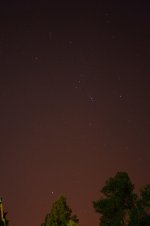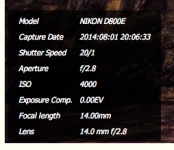Steppenwolf323
New member
I want to use my Nikon D5300 for Astrophotography. I currently have the 18-140mm and the 18-300mm Nikon Lenses. I have been told that Wide Angle is better for this kind of shooting so I am considering the Nikon 35mm f/1.8G AF-S DX Lens for Nikon Digital SLR Cameras or the Tokina 11-16mm f/2.8 AT-X116 Pro DX II Digital Zoom Lens (AF-S Motor) (for Nikon Cameras).
i can't decide which is better. Would someone with such experience please give me some guidance.
thank you
herbert
i can't decide which is better. Would someone with such experience please give me some guidance.
thank you
herbert


